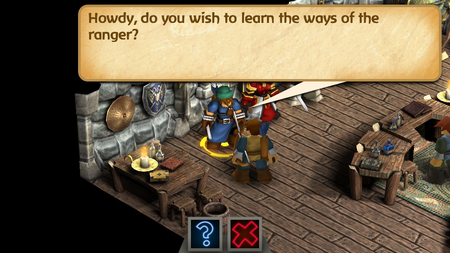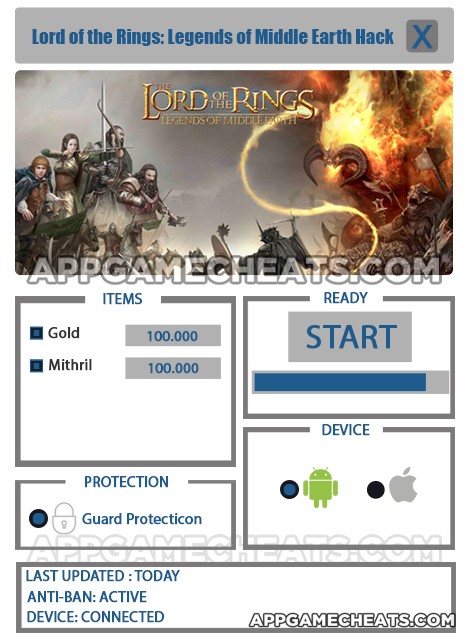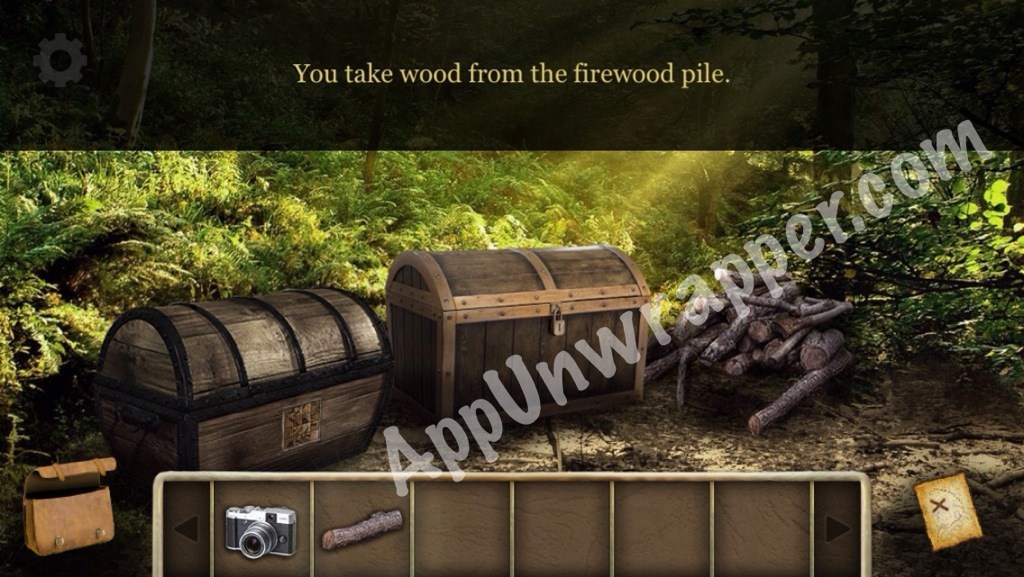

The Challenge: In any game, there must be the element of difficulty. No one likes to lose, but if there isn't that chance, there is no point to winning. And, the greater the risk of loss, the more poignant a hard-earned victory becomes. Role playing games are no different. Although many of these games are not strictly competitive between players, the characters almost always expose themselves to dangers and trials. If they can plow with ease through any encounter, there becomes no point to strategy and die rolls, and even description becomes stale. Thus, a designer must take into consideration the ninth challenge of building a versatile role playing game: the challenge of maintaining risk.
Risk is the chance that something bad will happen as a result of an encounter or sometimes even an action. If the characters fail to climb the wall, the assassin might get away. If they fail to win the battle, they might be captured or killed, and so on. Risk depends on a number of factors: the comparative power of the characters to the difficulty of the opposition, the system for establishing random chance, the potential effects of various abilities and strategies, and the possibility for unforeseen occurrences.
Two of these things, comparative power and unforeseen occurrences, are often in the hands of the game master?or at least, they should be if the RPG is balanced in the first place. The potential effects of abilities and strategies is also a factor of game balance, although a designer may wish to examine these things from a risk-based standpoint as well, and use risk to maintain balance. A risk doesn't have to be immediate and decisive. Just applying a cost adds risk to an ability. If the character must pay to use the power, it may find itself unable to call upon it when it really needs to. It is good to establish this sort of risk; it steers ability use away from simple memorization of every skill the character has and more towards strategic play.
The most important aspect of risk, though, is the system of randomness. Most role playing games use die rolls to determine the results of random chance. The number of dice rolled, the range of numbers on each die, the frequency of rolls, the availability of retries, the nature and proliferation of bonuses, all tie in to adjusting the level of risk in the RPG.
The Risk: As with all these challenges, the challenge of maintain risk has risks of its own. And, as always, there are problems with overemphasizing and underemphasizing the work you put into this challenge.
Too much risk can easily occur in a role playing game. This can be because there are few flat bonuses on checks. A numerical bonus?+1, for example'to a die roll helps to stabilize the check. It adds a flat increase to your chance of hitting a certain target score, directly modifying the percentage chance of doing so in a clear way. If these bonuses?and corresponding penalties?are uncommon or unavailable in your RPG, you place more in the hands of chance than some players may be comfortable with.
Too much risk can also occur from too many rolls. If your system allows a roll to attack the opponent, a roll to determine how well the opponent defends, a roll to determine the damage done, and a roll to offer a chance to reduce that damage, you are offering a much greater range of possibilities, which can impact game balance. When balancing a role playing game, the range of potentialities may be considered, but the average is often used as a deciding factor. An ability balanced for a situation of average rolls can cause much greater effect if one or more rolls are much different from the average. Each additional roll adds more chance to change the balance of that ability, taking more out of the hands of the game designer. This is particularly dangerous with offensive abilities, where risk takes on a very clear connotation. Simple rule of thumb: the main characters are subject to more attacks per game by far than any enemy, even a recurring villain, and those foes are to some extent expected to fall eventually anyway. As such, main characters are essentially guaranteed to eventually suffer a really bad roll. If that roll comes at the wrong time, it can turn an otherwise standard action into an inescapable deathblow. Yes, characters should risk death, and yes, anything can happen in combat. However, if you plan for your RPG to allow for games that last for prolonged durations, you have to modify risk enough that the main characters have a reasonable hope of survival.
Low-risk, however, isn't good either. It makes the game a purely analytical, statistical calculation. Low risk can come from few or no die rolls or too many bonuses, obviously, but there is also the chance that an RPG can have too many rolls, and thus become low risk. For example, if upon casting a fireball at a group of opponents, each one gets an entirely separate defense, there is no real risk. If the chance of defending is 40%, you can expect that on average, two foes in five will block the attack. Of course, if it is all handled by a single check, there is the chance that the fireball will do nothing?highly unlikely and annoying besides?or that it will wipe out the entire enemy force at a go'more likely perhaps, but still not necessarily good, especially if it was a villain's fireball!
Likewise, if when sneaking through a dungeon, four characters encounter five guards, and each guard makes a separate check to detect each character, there is no risk. If the guards have any chance at all of detecting the party, you can virtually guarantee that at least one will spot at least one character. Risk implies randomness, chance, and multiple checks sometimes only reduce the range of possible results.
Finally, risk can simply affect the style of play. If characters have to make three checks or roll ten dice every time they take an action, it bogs down game play. It is best to keep the dice chancy, yet simple.
The Solution: In QoTR, I went with a 2d6 system'that is, a system based on two six-sided dice. Rather than use an entirely additive system of bonuses, which would quickly reduce die rolls to flavor, I use a comparative system of stats. Players compare their stat to the foe's to determine what number they must roll to succeed the action. This does add a bit more calculation to making checks, but not an excessive amount, and I find it a fair price to pay for keeping the system functional even at higher levels. The nature of the check chart also helps balance super-powered attacks, so that they are strong without becoming completely unbeatable. The use of 2d6 also makes very high or low rolls less likely, keeping things to an average, so that while dice remain important, they won't necessarily trump good strategy or stats.
I use two types of check modifiers?a flat modifier, and a die modifier. A flat modifier is just a bonus, usually +/- 1 or +/- 2, that applies to the 2d6 roll. Due to the nature of the 2d6 system, a flat bonus can represent a significant percentile increase, so I don't have to load the game up with them. There are a number of ways to get bonuses, however, so I also implement a system of die modifiers. With a die modifier, the character rolls an extra number of dice, and discards either the highest (for die penalties) or lowest (for die bonuses), until it has only two dice. Every three points of flat modifiers are translated into die modifiers. Die modifiers can be quite potent, but tend to be less effective when the number required to succeed is high, and since they can't stack up the way flat bonuses can, this keeps the system from being overwhelmed by, say, 2d6+4 checks.
Maintaining risk is crucial for an entertaining role playing game. If there is no element of chance, battles become dull and victories stale. The most important aspect of risk is the die roll system. Too many or too few rolls or bonuses, or abilities that can take too-great advantage of too-high rolls can break an otherwise balanced system. Keeping the checks small, balancing flat bonuses with random bonuses, and minimizing excessive die rolling makes for a simpler RPG and one more fun to play.




 Phrase Wheel Landmarks Answers
Phrase Wheel Landmarks Answers Battleheart Legacy expert hints and tips - Ranger skill tree
Battleheart Legacy expert hints and tips - Ranger skill tree The Lord of the Rings: Legends of Middle Earth Hack for Gold & Mithril - AppGameCheats.com
The Lord of the Rings: Legends of Middle Earth Hack for Gold & Mithril - AppGameCheats.com The Lost Ship: Walkthrough
The Lost Ship: Walkthrough Angry Birds Star Wars 2 - Rebels 3 star walkthroughs (Bird Side)
Angry Birds Star Wars 2 - Rebels 3 star walkthroughs (Bird Side)